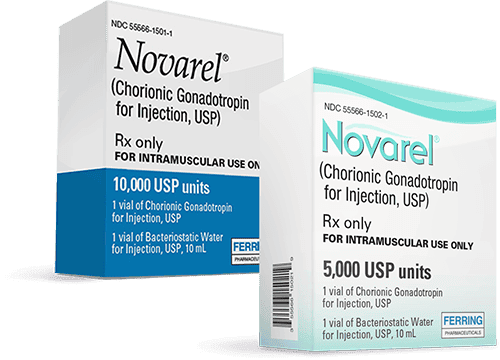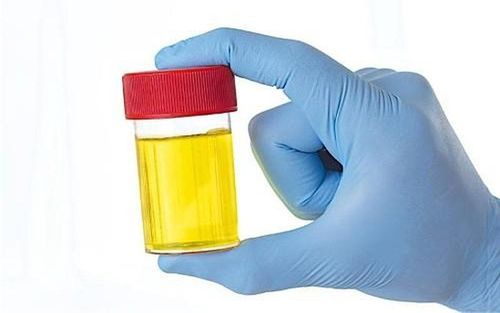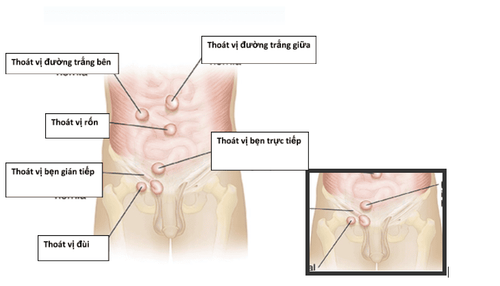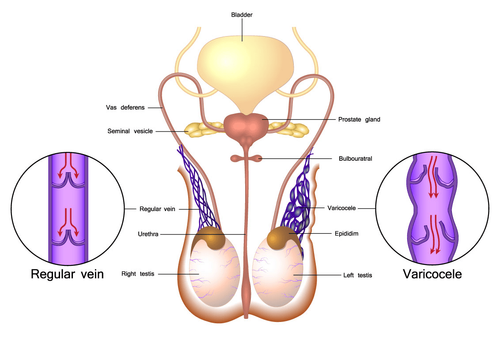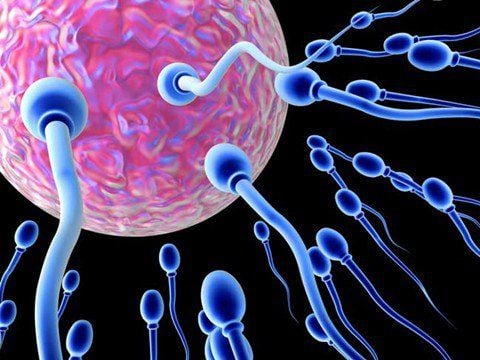This is an automatically translated article.
There are many causes of fertility problems in men, thereby affecting and forming factors that cause infertility. Therefore, it is important for you to understand the causes so that you can have an examination, treatment, lifestyle changes, and improvement of those factors. In some cases, men with fertility problems can still realize their dream of fatherhood thanks to today's advanced, modern assisted reproductive methods.
1. There are many causes of male fertility problems
About 11% of couples of reproductive age in the United States have difficulty conceiving or maintaining a pregnancy. About one-third of these cases are due to male fertility problems, about one-third to female fertility problems, and the remainder to factors related to female fertility. both sexual partners or for unknown reasons.
If you have had regular, unprotected sex for more than a year (or six months if you are over 35) without conceiving, you should contact your doctor. According to Resolve, the national infertility association, about 65% of couples who receive treatment for fertility problems end up having a successful pregnancy.
Initially, a specialist will usually examine you and your sexual partner. If your semen analysis is abnormal or if anything in your medical or reproductive history suggests you need a more thorough evaluation, you may be referred to a urologist or doctor. gynecologists, who can recommend treatment and assist you and your partner in deciding on assisted reproductive methods.
Sometimes, genetic factors leading to male infertility can be passed on to offspring. To rule out this possibility, your doctor may order blood tests and refer you to a genetic counselor to help you better understand the results. Below are the common causes of male infertility problems and the treatments available.

Có rất nhiều nguyên nhân dẫn đến vô sinh nam
2. Some common causes of male fertility problems
2. 1. Lifestyle and medical history
Your lifestyle and medical history can affect your reproductive organs and fertility. You may have fertility problems if you:
Smoke or marijuana Drink a lot of alcohol every day Use illegal drugs Take anabolic steroids Take certain medications, including both testosterone replacement therapy or medicines used to treat arthritis, high blood pressure, depression, cancer, infections, or digestive disorders Have chronic conditions, such as diabetes, cancer thyroid disease or cancer Poor nutrition Significantly overweight Exposure to toxins, such as pesticides or lead Having one or two testicles when you were young Had a hernia in the groin Had a sexually transmitted infection sexually transmitted infections, such as chlamydia or gonorrhea If you have any of these risk factors, talk to your doctor and consult with them about what you can do to improve your chances of reproductive.

Béo phì ở nam giới có thể dẫn đến vô sinh
2. 2. Varicose veins of the testicles
Varicose veins are enlarged veins (like varicose veins) in the scrotum. Varicose veins increase the temperature in the testicles, which can affect sperm production.
Possible symptoms: Most men have no symptoms, but some may experience scrotal pain, which varies from dull to sharp, especially after sitting, standing, or exercising. education for a long time. (Your doctor can check for varicocele with a physical exam or an ultrasound.) Possible solutions: Surgery to address varicocele, intrauterine insemination (IUI) or in vitro fertilization (IVF) with or without intracytoplasmic sperm injection (ICSI).
2. 3. Ejaculation problem
A small percentage of men have a blocked ejaculatory duct that prevents sperm from entering the ejaculatory fluid. This happens when the epididymis (the organ that carries sperm from the testicles) or the vas deferens (the tube that carries sperm to the ejaculatory duct) is blocked or damaged.
Some other cases of retrograde ejaculation. Retrograde ejaculation is when semen enters the bladder instead of exiting the penis because the muscles in the bladder neck don't work properly. In this case, the man still has normal sex and orgasms. However, the ejaculate will be very little or no ejaculate. Therefore, the ability of sperm to enter the uterus to meet the egg is almost nonexistent. The majority of retrograde ejaculation occurs in men who have undergone prostate enlargement surgery.
Infections, trauma, diabetes, nerve problems, birth defects or blocked vas deferens can also cause ejaculation problems.
Possible symptoms: Usually there aren't any symptoms, although if you have retrograde ejaculation, you may notice cloudy urine or little or no ejaculation after orgasm. Possible solutions: IUI or surgery to correct the blockage, reverse the vas deferens, or remove sperm for IVF.
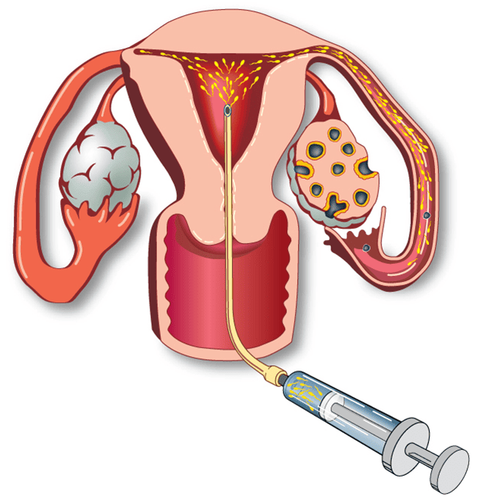
Phương pháp thụ tinh nhân tạo giúp điều trị vô sinh ở bệnh nhân giãn tĩnh mạch thừng tinh
2. 4. Sperm count or motility problem
If you have little or no sperm, poor sperm motility, or abnormally shaped sperm, your sperm may not be able to fertilize your partner's egg. Problems with sperm production or quality can be caused by hormonal imbalances, illness or injury to the genital or urinary organs, fever or exposure to high temperatures, and certain disorders. genetics, various drugs and poisons.
Possible symptoms: usually no symptoms. Possible solutions: Assisted reproductive drugs, IUI with donor sperm (or with your own if your numbers, shape, and mobility are adequate), or IVF with ICSI.
2. 5. Anti-sperm antibodies
Your body can develop antibodies that reduce motility or even destroy sperm. This most commonly occurs after a vasectomy, testicular torsion (a testicle twisted inside the scrotum), infection, or trauma.
Possible symptoms: None. Possible solutions: IVF with ICSI is the mainstay of treatment. You can also take steroids, such as prednisone, to block sperm antibodies, but many doctors don't recommend them because of the side effects of prolonged use.
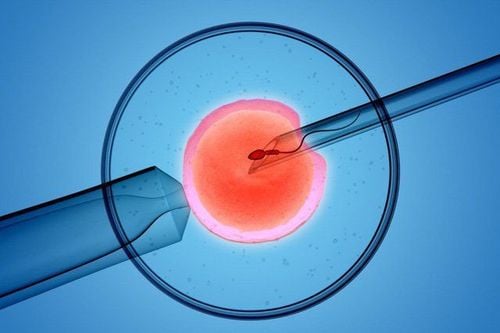
Phương pháp IVF là giải pháp khả thi trong trường hợp kháng thể chống tinh trùng
2. 6. Some other reasons
Your doctor may diagnose you with "explained infertility" if tests cannot pinpoint the exact cause of your difficulty conceiving. Some experts think there could be many contributing factors to your fertility problems, such as exposure to environmental toxins, small differences in sperm function or fertilization. sperm count, sperm count or motility is below the normal range, or a combination of these or other factors. This issue needs to be studied more clearly.
Possible symptoms: None. Possible solutions: Fertility drugs combined with IUI or IVF. Besides treating the causes affecting fertility in men with medical methods, it is necessary to apply a reasonable diet and lifestyle, this is also a measure to improve sperm quality.
In addition, it is necessary to have regular check-ups to detect abnormal signs early. This is the best way to protect male reproductive health.
Currently, Vinmec International General Hospital is applying the Pre-Marriage Examination Package to encourage couples to have a pre-marital examination to assess fertility and detect possible causes early. to infertility and infertility, including performing examinations and evaluating fertility in both men and women.

Trung tâm Hỗ trợ sinh sản Vinmec đem lại niềm vui cho các cặp vợ chồng vô sinh hiếm muộn
Vinmec Reproductive Center is the leading modern center in Vietnam, built and applied a comprehensive medical examination and treatment process, combining both male and female obstetrics and gynecology to offer the optimal plan. for each patient case. Up to now, Vinmec IVF fertility center has provided fertility support to over 1000 infertile couples with a success rate of over 40%. This rate is equivalent to developed countries such as UK, USA, Australia,...
With high professional level and extensive experience, Vinmec's team of experts is capable of deploying. Synchronize and comprehensively the most advanced assisted reproductive techniques today, helping to realize the dream of parenthood of hundreds of families across Vietnam.
Please dial HOTLINE for more information or register for an appointment HERE. Download MyVinmec app to make appointments faster and to manage your bookings easily.
Reference source: babycenter.com
SEE MORE
What is the normal semen analysis result? How does sperm formation take place? Male infertility AZF deletion test




